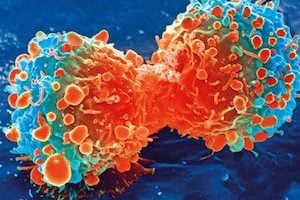Defining the ‘Gold Standard’

In their search for new ways to treat cancer, many scientists are using a high-tech process called genome sequencing to hunt for genetic mutations that encourage tumor cells to thrive. To aid in this search, some have developed new bioinformatics methods that claim to help pinpoint the cancer-friendly mutants.
But a stubborn question remains: Among the numerous new tactics that aim to spotlight the so-called cancer driver genes, which produce the most accurate results?
To help solve this puzzle, a team of Johns Hopkins computational scientists and cancer experts—including doctoral student Collin Tokheim—devised its own bioinformatics software to evaluate how well the current strategies identify cancer-promoting mutations and distinguish them from benign mutations in cancer cells.
The results of the researchers’ analysis were published recently in Proceedings of the National Academy of Sciences.
One of the challenges the team faced was the lack of a widely accepted consensus on what qualifies as a cancer driver gene. “People have lists of what they consider to be cancer driver genes, but there’s no official reference guide, no gold standard,” says Tokheim, a lead author and researcher in the Institute for Computational Medicine and the Department of Biomedical Engineering.
Nevertheless, Tokheim and his colleagues were able to develop a machine learning–based method for driver gene prediction and a framework for evaluating and comparing other prediction methods. For the study, this evaluation tool was applied to eight existing cancer driver gene prediction methods.
“Our conclusion is that these methods still need to get better,” says Tokheim, who was supervised by his doctoral adviser, Rachel Karchin, an associate professor of biomedical engineering and oncology, and senior author of the article. “We’re sharing our methodology publicly, and it should help others to improve their systems for identifying cancer driver genes.”
– Phil Sneiderman
